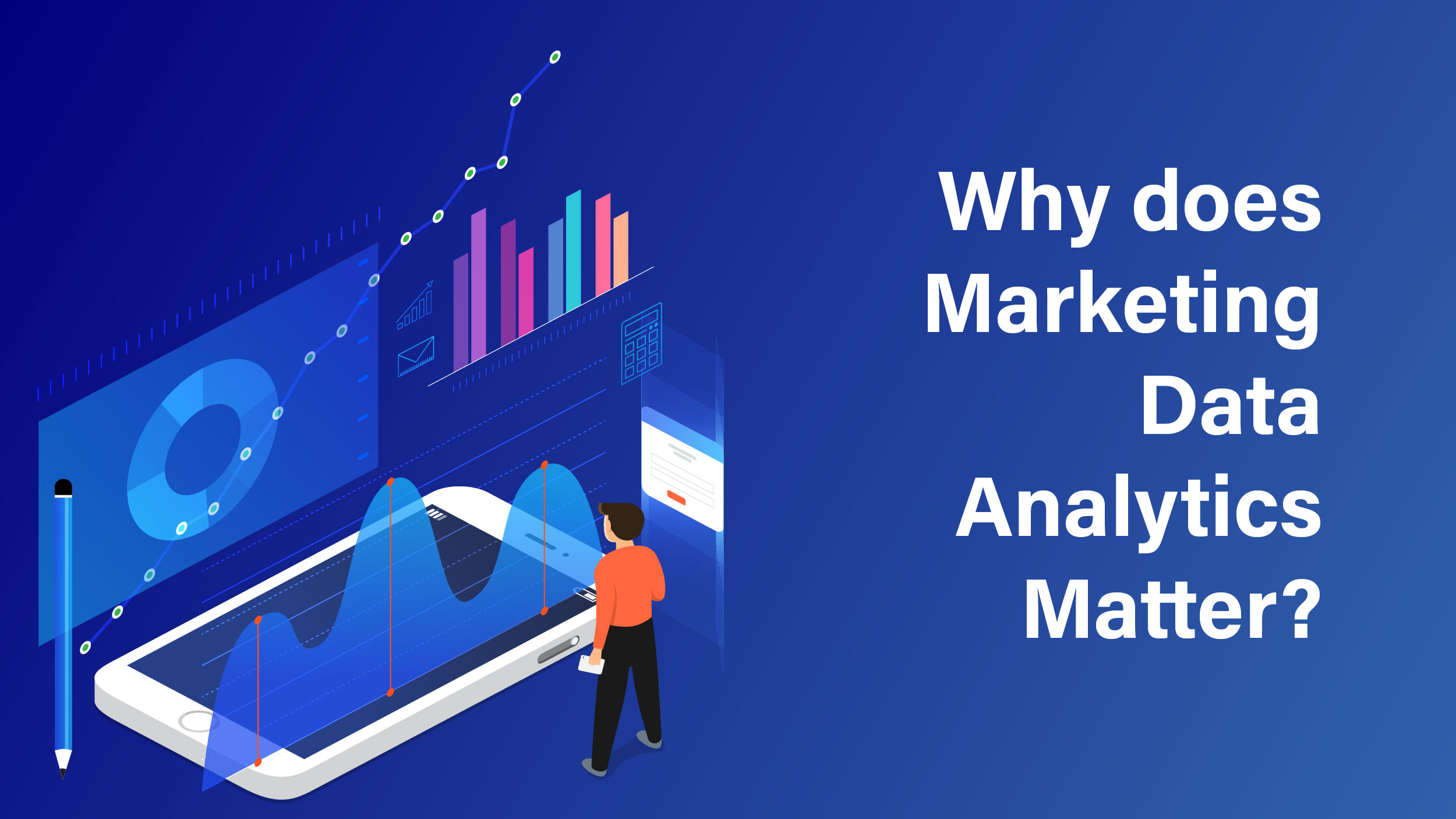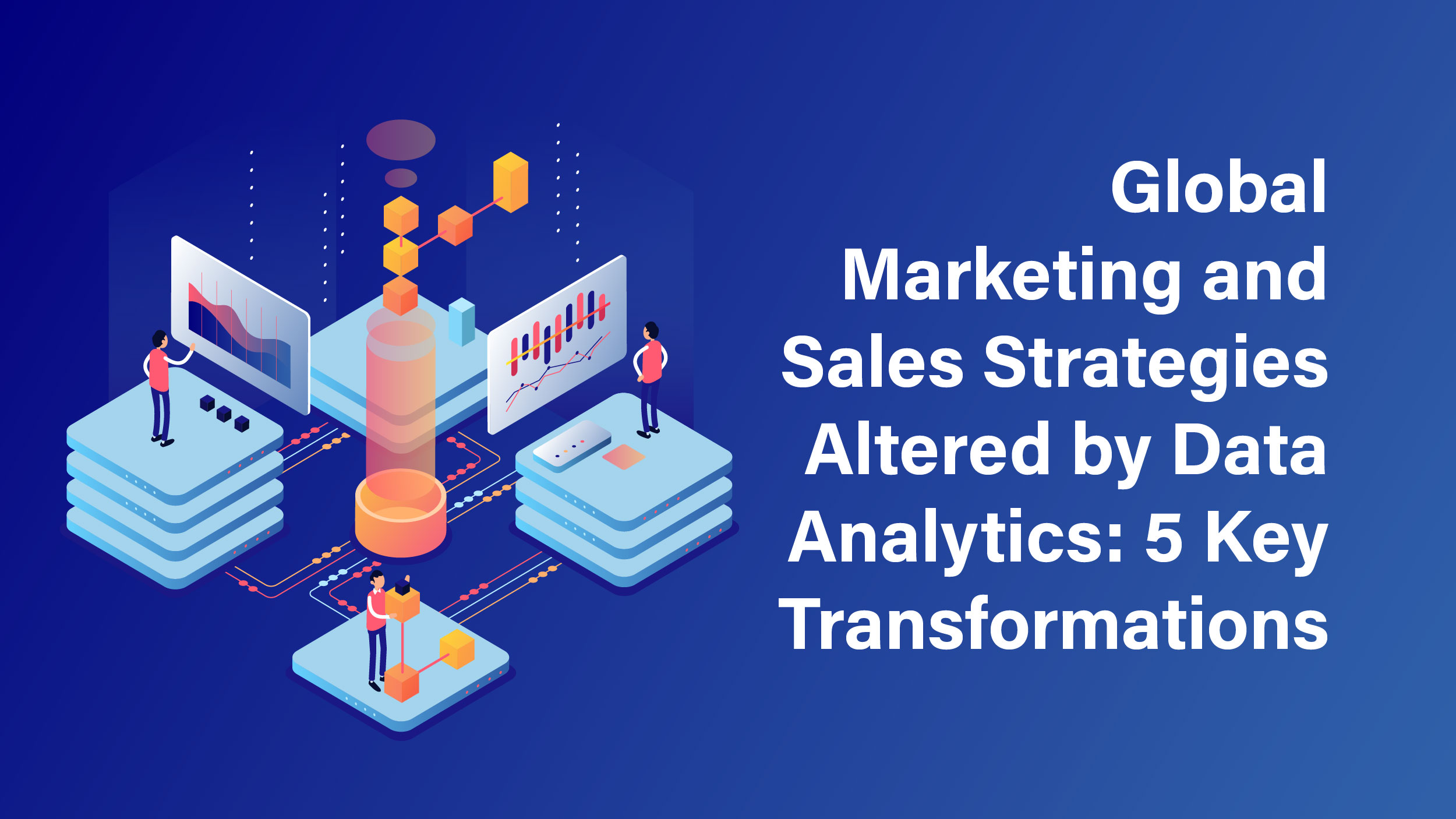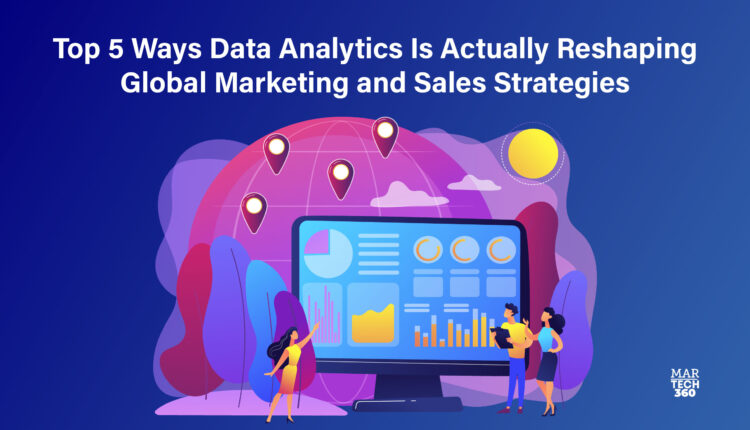Data analytics in marketing is becoming an increasingly important tool. You can always discover new information about your customers as you run ads by watching their clicks, likes, opens, and shares. While data is king, the real power comes from processing and analyzing the data to produce insights, which then help us make better choices about our future course of action.
This blog post defines marketing data analytics, discusses various methods for building marketing strategy, and lists the top marketing analytics tools. We’ll also discuss why it’s important and how to apply it to enhance your profits.
Let’s get the ball rolling!
What is Marketing Analytics?
Tracking and analyzing data from marketing initiatives is the practice of marketing analytics, frequently to achieve a quantitative aim. Organizations may enhance consumer experiences, boost the return on investment (ROI) of marketing initiatives, and create new marketing strategies using the insights gathered through the method.
As per a study carried out by PwC, companies that heavily rely on data are three times more prone to experience notable enhancements in their decision-making compared to their counterparts with lower emphasis on data. It’s crucial to be knowledgeable about the fundamentals of this practice and how it may guide your organization’s decisions, whether you work with marketers or are one yourself.
Why does Marketing Data Analytics Matter?
 Marketing analytics goes beyond being an add-on; it’s a vital instrument enabling marketers to gain deeper insights into their customers and utilize data-driven choices for enhancing their marketing campaigns. Here are a few things you can achieve with marketing analytics:
Marketing analytics goes beyond being an add-on; it’s a vital instrument enabling marketers to gain deeper insights into their customers and utilize data-driven choices for enhancing their marketing campaigns. Here are a few things you can achieve with marketing analytics:
● Get a Handle on Your Customer’s Journey
With the aid of marketing data analytics, organizations can better understand the client journey, from first contact to final purchase. Additionally, by seeing how customers behave at each stage of the buying process, marketers can design relevant and personalized experiences that not only increase customer engagement but also conversion rates.
● Determine What is Effective and What isn’t
Businesses may determine which campaigns are effective and which ones require more work using marketing analytics, and marketers can adjust their strategies to produce even greater results.
● Craft Personalized Outreach
Customer preferences, behaviors, and interests are revealed by marketing analytics. With this knowledge, marketers may develop tailored ads that connect with their target market and promote engagement.
● Measure ROI
With the use of marketing analytics, marketers may calculate the return on investment (ROI) of their marketing efforts and decide where to allocate their resources for optimal outcomes based on data.
Global Marketing and Sales Strategies Altered by Data Analytics: 5 Key Transformations
 Businesses can utilize data analytics to make better decisions, improve customer experiences, maximize marketing efforts, and promote overall business growth. Let’s take a closer look at the best 5 ways to make the most of your marketing data analytics.
Businesses can utilize data analytics to make better decisions, improve customer experiences, maximize marketing efforts, and promote overall business growth. Let’s take a closer look at the best 5 ways to make the most of your marketing data analytics.
1. Strengthens Customer Relationships
It’s a well-known principle of marketing and profit-making that the better you know your consumers, the better you’ll be able to identify their preferences and adjust price, content, and user interface accordingly. Any data expert can analyze big data, which can lead to some very insightful findings. Knowing the customer and their preferences allows the marketing team to better comprehend the customer’s decision-making process before recommending a certain brand. This enables the marketing team to customize and streamline the customer journey.
2. Brand Channeling
Big data is also collected from social media so that the marketing team can monitor what is trending and modify their marketing plan accordingly. The team’s focus here is audience engagement. Big data also provides insights into the channels that are most effective at delivering the greatest results. This will allow the company to allocate resources to their channels in accordance with the marketing.
3. Analyze Competition
Big data and marketing analytics can provide businesses with information about their competitors’ prices and inflation rates over time, as well as enable them to understand the purchasing power of their brand’s users so that they can stick to it without incurring any losses. Furthermore, the data on changing prices, when analyzed through marketing data analytics, can aid the organization in developing new strategies to clear old product stockpiles during sales or make appropriate price decisions for new products that are intended to be launched in the market.
4. Brand Positioning
Having information about a brand’s growth and consumer base can benefit businesses in establishing their brand in the market among the ideal customers. This is the most well-known marketing technique, and it is similar to differentiation.
Knowing why your business is popular with consumers can help in establishing the niche as well as developing a plan that represents the brand while also attracting the attention of other customers. Brand positioning can be done based on a variety of factors such as price, quality, target demographic, and so on, with the goal of gaining traction among a specific group. This type of marketing technique not only increases sales but also fosters market competitiveness.
5. Improve Return on Investment
Finally, one of the most significant aspects of data and analytics is that they allow you to observe more than simply analyze how your efforts affect the bottom line of your organization. They enable you to track your progress at each stage of the client journey and assess the impact of each of your marketing initiatives separately.
All of this is to say that your marketing ROI does not necessarily have to be a conversion. Create different milestones that you and your team can track and analyze throughout a campaign or sales cycle if you haven’t already. You’ll be able to see what works and what doesn’t, as well as provide a more integrated plan and overall message to key stakeholders.
The Best Marketing Analytics Tools
Using appropriate marketing data analytics tools can aid companies in optimizing their data gathering and analysis process, saving time, enhancing customer lifetime value, and arriving at well-informed decisions, whether looking back or in the present moment. Here are several top-notch marketing analytics instruments available in the market today:
- For web analysis
- Google Analytics
- Contentsquare
- For social media analysis
- Sprout Social
- Hootsuite
- Zoho
- For email analysis
- Mailchimp
- Hubspot
- Omnisend
- For SEO analysis
- Semrush
- Ahrefs
- Google Search Console
Get the Best Results from Your Marketing Analytics
The vast array of available Key Performance Indicators (KPIs) can be quite overwhelming, and you’re certainly not alone in feeling this way due to the immense volume of data. Nonetheless, there has never been a more critical time to transform that data into valuable insights.
Data on customer demographics and the effectiveness of your marketing efforts enables your company to gain more insightful information. Utilize them to improve marketing choices, free up time for useful tasks, and outperform competitors who may be letting their data get outdated.
Although marketing has a data problem, this is no justification for leaving your most crucial KPIs in an outdated Google Sheet. The correct data has the ability to completely revolutionize your marketing program, from consumer behavior to return on marketing investment.


Comments are closed.